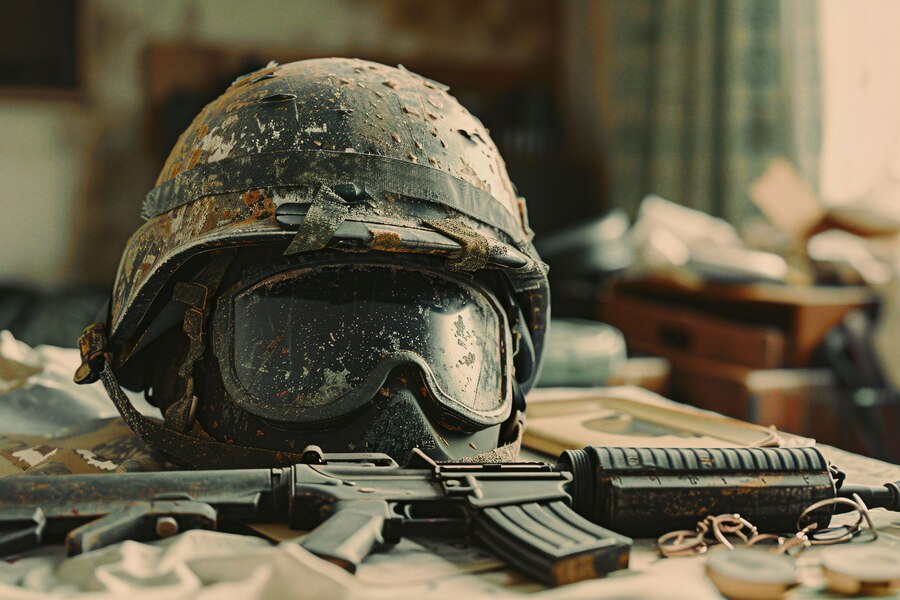Throughout history, a military tribunal has been used for judging military forces, specifically during war. Military personnel accused of breaking military laws or committing serious offenses such as war crimes or treason can face a military tribunal.
If you are caught stealing from a fellow soldier, then you would potentially be tried in a military court. Whereas, if you are a civilian accused of shoplifting, you have a traditional judge or jury to try you through a civilian court system.
Let’s dig deeper into what a military tribunal court does.
Historical Origins of Military Tribunals
During times of war or conflict, the need for expeditious and effective resolution of disputes within the military hierarchy became paramount. These tribunals were initially established to maintain order, discipline, and cohesion among troops in the face of adversity.
In ancient Rome, military tribunals were a common feature of military justice. Roman commanders had the authority to convene these tribunals to address offenses committed by soldiers. The decisions made by these tribunals were often swift and harsh, intended to deter others from committing similar acts.
In medieval Europe, military tribunals played an important role in maintaining discipline within the ranks. Soldiers found guilty of misconduct or disobedience were quickly tried and punished by their peers or superiors. This system of justice helped make sure that military operations ran smoothly and that soldiers adhered to the chain of command.
Jurisdiction and Authority of Tribunals
With a clear delineation of powers, military tribunals assert their jurisdiction and authority over cases involving military personnel. These tribunals have the competence to handle a wide range of offenses committed by military members, including violations of military law, war crimes, and acts that compromise national security.
Their authority is derived from military regulations and laws, granting them the power to investigate, prosecute, and adjudicate cases within their purview.
Military tribunals operate under a distinct legal system separate from civilian courts. Their jurisdiction extends to active-duty service members, reservists, and in some cases, civilians accompanying the armed forces in conflict zones. This specialized jurisdiction allows tribunals to efficiently address cases that fall under military jurisdiction, attesting discipline and accountability within the military ranks.
The authority of military tribunals to enforce discipline and uphold military law is necessary in maintaining order and integrity within the armed forces. These tribunals play a huge role in upholding military justice and ensuring compliance with the laws governing military conduct by handling cases internally and according to military regulations.
Composition and Structure of Tribunals
In military tribunals, a diverse panel of military officers and legal experts comprises the composition and structure of these specialized courts. This group of individuals makes sure a balanced and informed decision-making process. The tribunal panel typically consists of at least three members, with one serving as the presiding officer. The presiding officer leads the proceedings, maintains order, and ensures fairness throughout the trial.
The other members of the panel provide additional perspectives and expertise, contributing to a comprehensive evaluation of the case at hand.
In some military tribunals, there may be the inclusion of non-voting members, such as legal advisors or subject matter experts, who offer guidance on complicated legal or technical matters. This collaborative approach enhances the tribunal’s ability to reach well-informed and just decisions.
The structure of military tribunals is designed to promote fairness, expertise, and efficiency in adjudicating cases related to military law and justice.
Legal Procedures and Due Process
Legal proceedings in military tribunals adhere to strict procedural guidelines to guarantee due process for all parties involved. When a case is brought before a military tribunal, the accused is granted the right to be informed of the charges, to present evidence, and to cross-examine witnesses.
The accused also has the right to legal representation, and if they can’t afford one, the tribunal will appoint a defense counsel. The burden of proof lies with the prosecution, which must establish the guilt of the accused beyond a reasonable doubt.
During the trial, the military tribunal operates under the principles of fairness and transparency. The proceedings are conducted in a structured manner, with clear rules of evidence and procedure to guide the process. The tribunal’s decisions are based on the law and the facts presented during the trial. The accused also has the right to appeal the tribunal’s decision to a higher military court to ensure that justice is served. These procedural safeguards help uphold the principles of due process and protect the rights of all individuals involved in military tribunal proceedings.
Impact of Military Tribunals on Personnel
Military tribunals significantly impact the personnel involved in cases brought before them by determining their legal fate within the military justice system. The prospect of a tribunal can be daunting for military personnel facing charges.
The outcome of the tribunal can have severe consequences, affecting not only the individual’s military career but also their personal life. The stress of facing a tribunal, preparing a defense, and awaiting a verdict can take a toll on the mental and emotional well-being of the personnel involved.
The disciplinary actions that may also result from a tribunal decision, such as demotion, discharge, or confinement, can have a lasting impact on the individual’s future within the military. The public nature of military tribunals can also subject personnel to increased scrutiny and judgment from their peers.
Conclusion
Military tribunals serve as specialized courts for addressing military-related offenses. They have a long history and unique jurisdiction, composed of military personnel and legal experts.
Military tribunals play an important role in maintaining discipline and enforcing military law despite criticisms about due process. As a member of the armed forces, you may find yourself facing a military tribunal, so it’s important to understand their structure and procedures.





